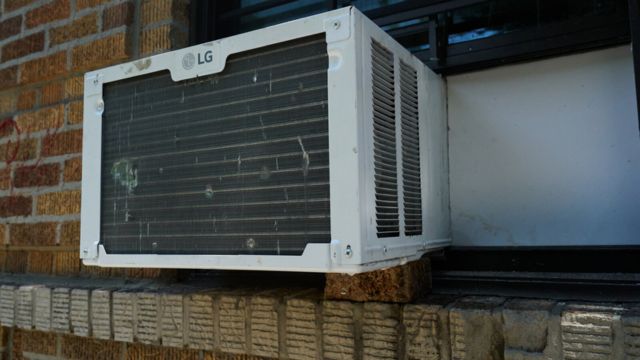WFCN –
New York City is considering a bill that would require landlords to furnish tenants with air conditioning (AC) units. In cities, where summer temperatures can reach dangerously high levels, this program aims to alleviate worries about the comfort and safety of tenants.
The Bill’s Specifics
Landlords would be required to comply with the following regulations under the bill that is presently being considered by city officials:
The installation and maintenance of air conditioning units in all rental apartments inside a building would be the responsibility of the landlord.
The bill would lay out the minimum acceptable temperatures that would necessitate the installation of air conditioning. For instance, in order to protect their tenants from overheating, landlords might be compelled to install air conditioning units when the temperature inside surpasses a specific threshold.
The expense of buying and installing air conditioners, as well as keeping them in good working order all year round, would fall on the landlord.
Tenant Access: Landlords are required to provide their tenants with access to air conditioning systems, so tenants can manage the temperature to their liking.
Justification of the Project
Several reasons have contributed to the development of this proposed bill:
A comfortable and healthy living environment is essential for all tenants, but especially those most at risk, including the young, the old, and those with preexisting medical concerns. Having access to air conditioning can help reduce these dangers and enhance the general welfare of tenants.

Justice and Equality: The measure seeks to eliminate inequalities in cooling amenities, guaranteeing that all renters, irrespective of their socioeconomic standing, can enjoy a minimum degree of comfort in their homes.
Climate Change: As the world’s average temperature continues to rise, distributing air conditioners to cities might lessen the impact of heat waves and make them more resilient.
Obstacles and Possible Effects
The proposed bill has good intentions—to make tenants’ lives easier and safer—but it also brings up certain questions and problems:
SEE MORE –
Election Officials Oppose the Contentious Ohio Election Bill, Which the Bill’s Proponent Defends
Some landlords may be wary of installing air conditioning units because of the potential expense of doing so, especially for older properties that may necessitate infrastructural modifications.
To put the new regulations into action and make sure everyone follows them, the city’s departments, landlords, and tenants would have to work together. The installation and maintenance processes require well-defined parameters and schedules.
Defining the roles and duties of tenants in relation to air conditioner use and maintenance is crucial for avoiding abuse and extending the life of the equipment.
Input from the Community and What Comes Next
Landlords and property owners have voiced worries about operational difficulties and financial ramifications, while tenant rights campaigners have voiced their support for the plan.
City officials must approve the bill before it can become law, which is why it is still in the early stages of study. To further develop the final terms of the bill and address any lingering concerns, public hearings and stakeholder engagements are expected.
Conclusion
New York City’s planned legislation mandating air conditioning for renters is part of a larger movement to ameliorate urban dwellers’ living circumstances and combat climate change. The bill’s shape will be heavily influenced by stakeholders as discussions progress, so that landlords’ concerns are met while tenants’ requirements are taken into account.
Keep an eye out for updates as the legislation moves forward; it could pave the way for comparable efforts in other cities dealing with climate resiliency and tenant rights.
